Kirsty Hughes is always a welcome guest on our podcasts. We think she has the knack of clarifying complex issues and putting them into context without overly-simplifying them. A few days after the Supreme Court delivered their ruling on a Scottish referendum, I saw this Twitter thread by Kirsty Hughes. Here are her thoughts on going for a quasi-referendum.
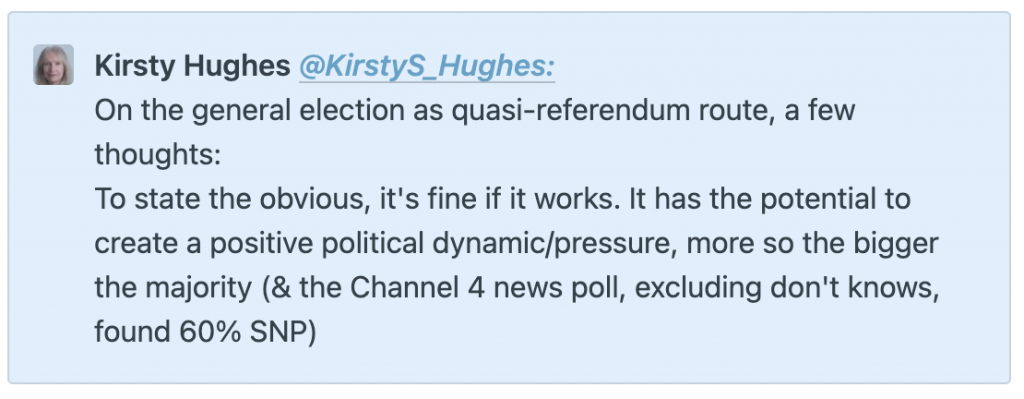
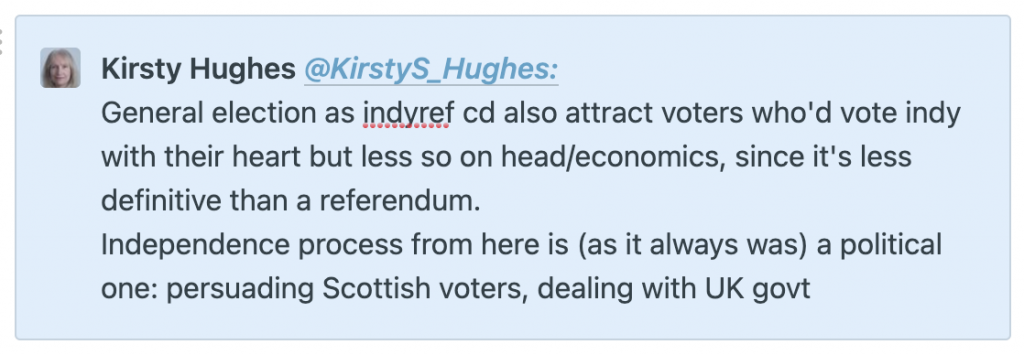
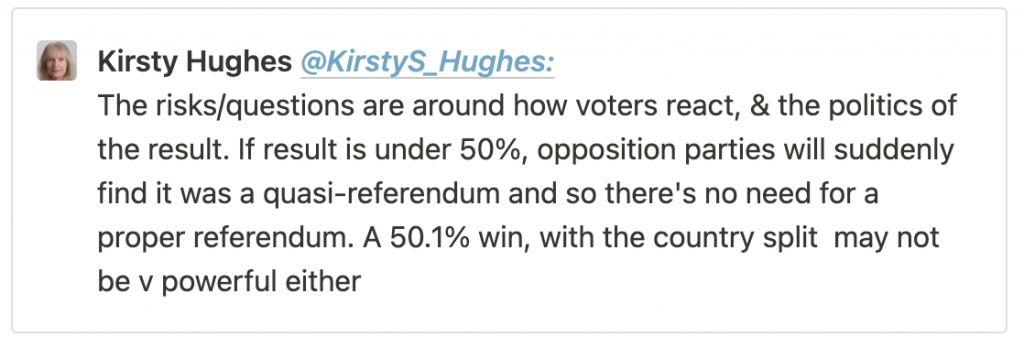
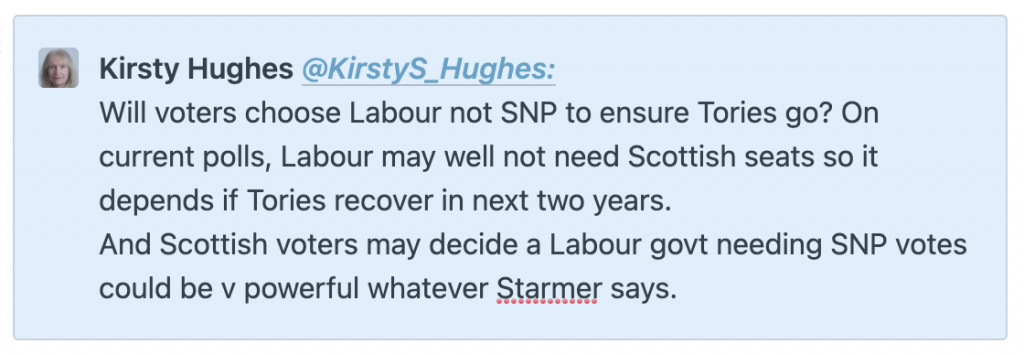
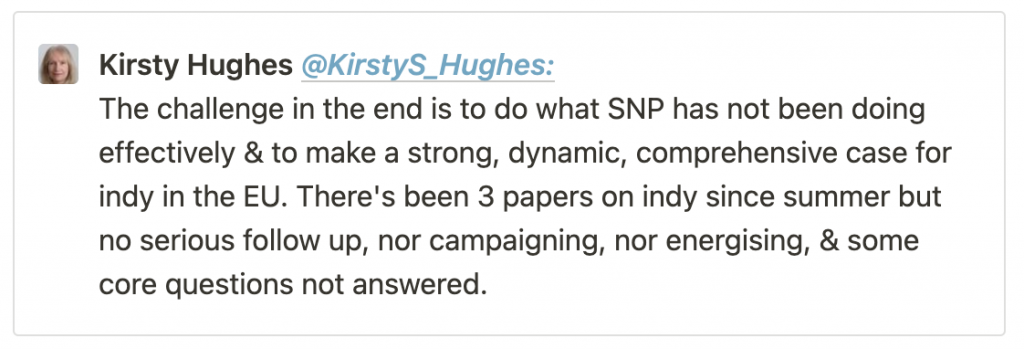
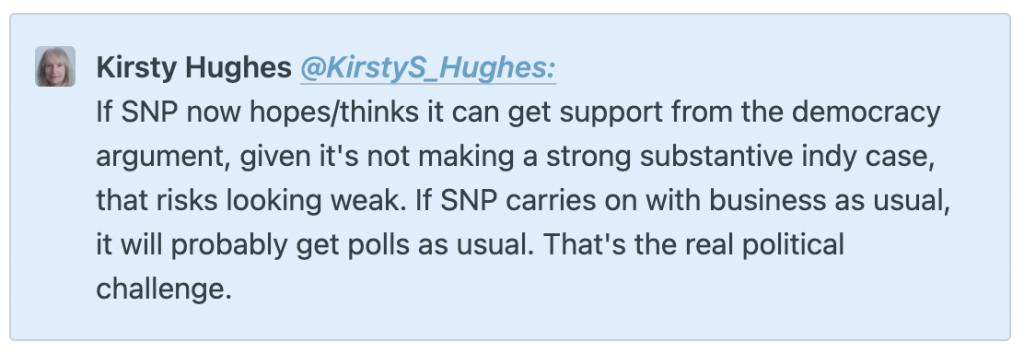
Eligible Voters
There are other disadvantages to pursuing a quasi-referendum which Kirsty doesn’t mention. Voters aged 16 and 17, and EU citizens resident in Scotland are eligible to vote in a conventional referendum. But they are not eligible to vote in a UK General Election. And those two blocks of voters are highly pro-Independence.
Probable Unionist U-Turns
The Unionist parties are already nailing their colours to the mast on basis that you can’t make a general election into a one-issue referendum. And you can find more on that here: Geese, Ganders & Sauce.
But I bet that Kirsty is right when she says if fewer than 50% of the votes cast are for independence supporting parties, the Unionists will drop their anti de facto referendum stance. At that they will do a rapid U-turn. We know they are good at U-turns. And then they’ll say “That’s that then, you didn’t vote for it, that’s it settled, no need for another stand-alone referendum. Ever.”.
And the Job is Still to be Done
Our job is to keep on plugging away till we are certain that we have built support for independence into the settled will of Scotland. We’re nearly there. But the job isn’t finished.
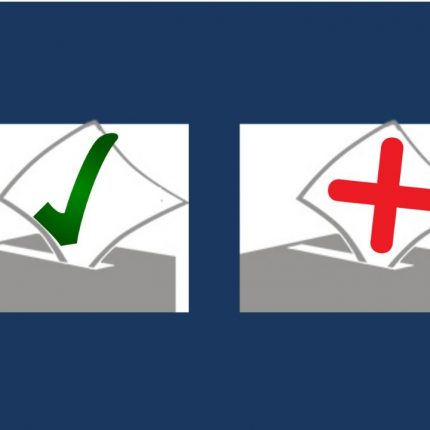
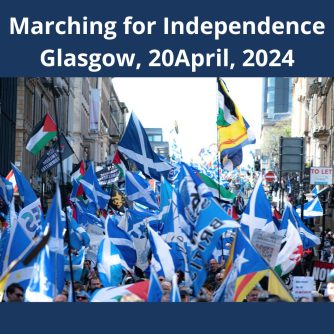
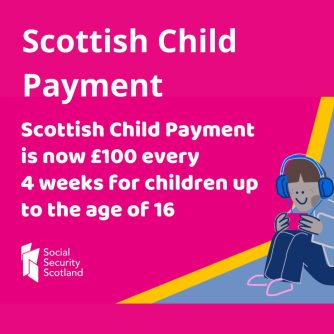
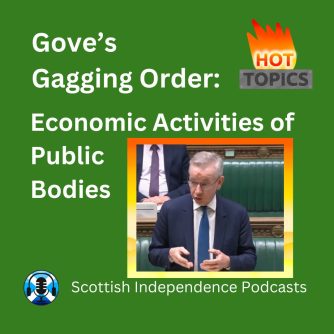

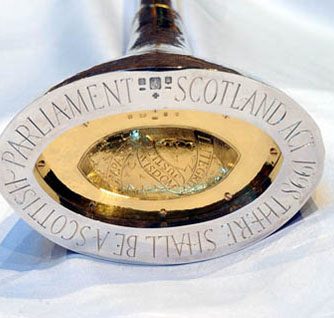

Hello!
As a foreigner (French-speaking Jura, Switzerland) I had a struggle of several decades (others before us had started it) for my region to be autonomous. We too have been “independent” for centuries. Then the Congress of Vienna in 1815 “exchanged” us as compensation for the patricians of the canton of Bern, such as livestock, with pastures and forests.
And we ended up becoming an autonomous region again. We are too small to be a country, it is not quite comparable with Scotland. However, the mechanisms to block us were identical. The same arrogance of power, the purchase of politicians and bosses of industries , the fabricated “war” of religion, manufactured fear and intimidation, black boxes, sellers and traitors, independence parties that do not agree with each other…
Everything was there, as for the Scots, but on a smaller scale of course.
But since 1978, we have been there.
23rd Swiss canton, the canton of Jura.
…
I’m not going to be pretentious and say what you have to do. It is your story. And I am convinced that it will end well.
I believe that the engine of our movement, its strength, was the fact that young people (<50 years old) led the struggles and participated because culture, identity, project, were clearly defined, repeated and adopted by those who thought they were participating in an exciting construction. The parties played a role of course, but less compared to the strength of enthusiasm!
Here it is…
Many thanks for getting in touch Alasdair – a very interesting perspective!